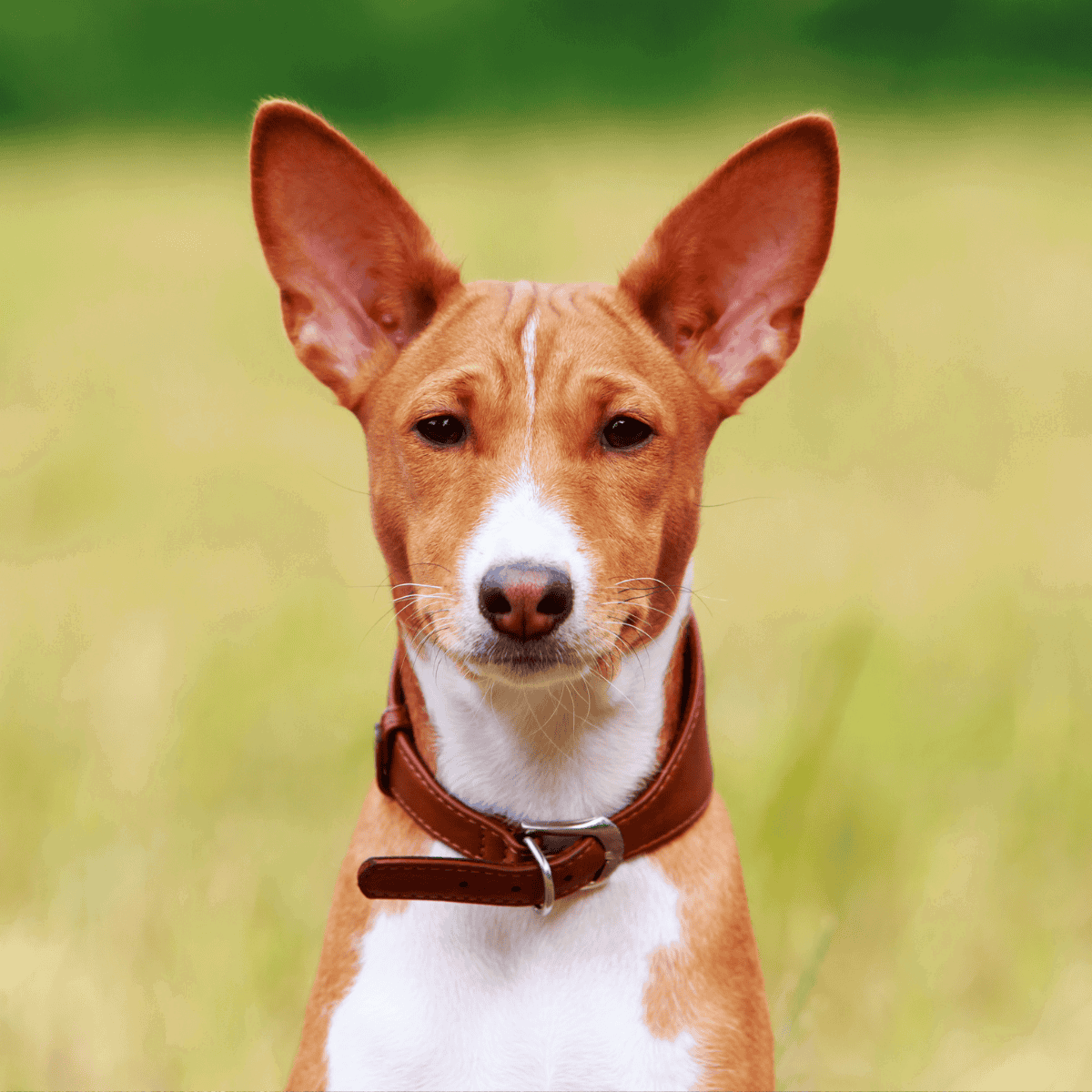
Basenji
Shortcuts
Basenjis, known as Africa’s “Barkless Dog,” are distinguished by their compact size, intelligence, and grace. Their unique features include tightly curled tails, expressive almond-shaped eyes, and sleek, short coats. Unlike other breeds, Basenjis produce a distinct sound reminiscent of a chortle and a yodel instead of barking. They also possess cat-like grooming habits and an elegant demeanor, making them standout pets.
Their expressive eyes and wrinkled foreheads can convey a wide range of emotions akin to humans, endearing them to many as companions. Owning a Basenji is a uniquely rewarding experience that profoundly engages dog enthusiasts.
Breed Overview

Height
17 inches (male)
16 inches (female)
Weight
24 pounds (male)
22 pounds (female)
Lifespan
13 – 14 years
Colors
Black and white, black and tan and white, red and white, brindle and white
Suitable for
Active individuals or families seeking an intelligent, independent, high-energy breed that does not shed or bark
Temperament
Independent, intelligent, confident, playful, and reserved


Height
17 inches (male)
16 inches (female)
Weight
24 pounds (male)
22 pounds (female)
Lifespan
13 – 14 years
Colors
Black and white, black and tan and white, red and white, brindle and white
Suitable for
Active individuals or families seeking an intelligent, independent, high-energy breed that does not shed or bark
Temperament
Independent, intelligent, confident, playful, and reserved

The Basenji is a small to medium-sized breed known for its unique yodel-like sound, often referred to as a “barroo.” Originating from Central Africa, these dogs were originally bred for hunting and are recognized for their agility and keen hunting instincts. With a short, fine coat that requires minimal grooming, Basenjis are often described as clean and cat-like in their behaviors.
Characteristics
Energy

Health

Sociability

Trainability

Lifespan


Enjoying this read?
We publish this content for free to generate interest in our Premium members' area. By subscribing, you can ask the writer any questions related to pet care and this article, get access to 100+ Premium Pet Care Guides and go Ad-Free with DogFix Premium for $2.99.
Health Conditions
Basenjis are typically a robust and healthy breed. However, they may be susceptible to obesity, so it’s important to monitor their diet and weight. Consistent exercise and a well-balanced diet are crucial for maintaining their health.
Minor Conditions
- Hypothyroidism
Serious Conditions
- Progressive Retinal Atrophy (PRA)
- Fanconi Syndrome
- Hip Dysplasia

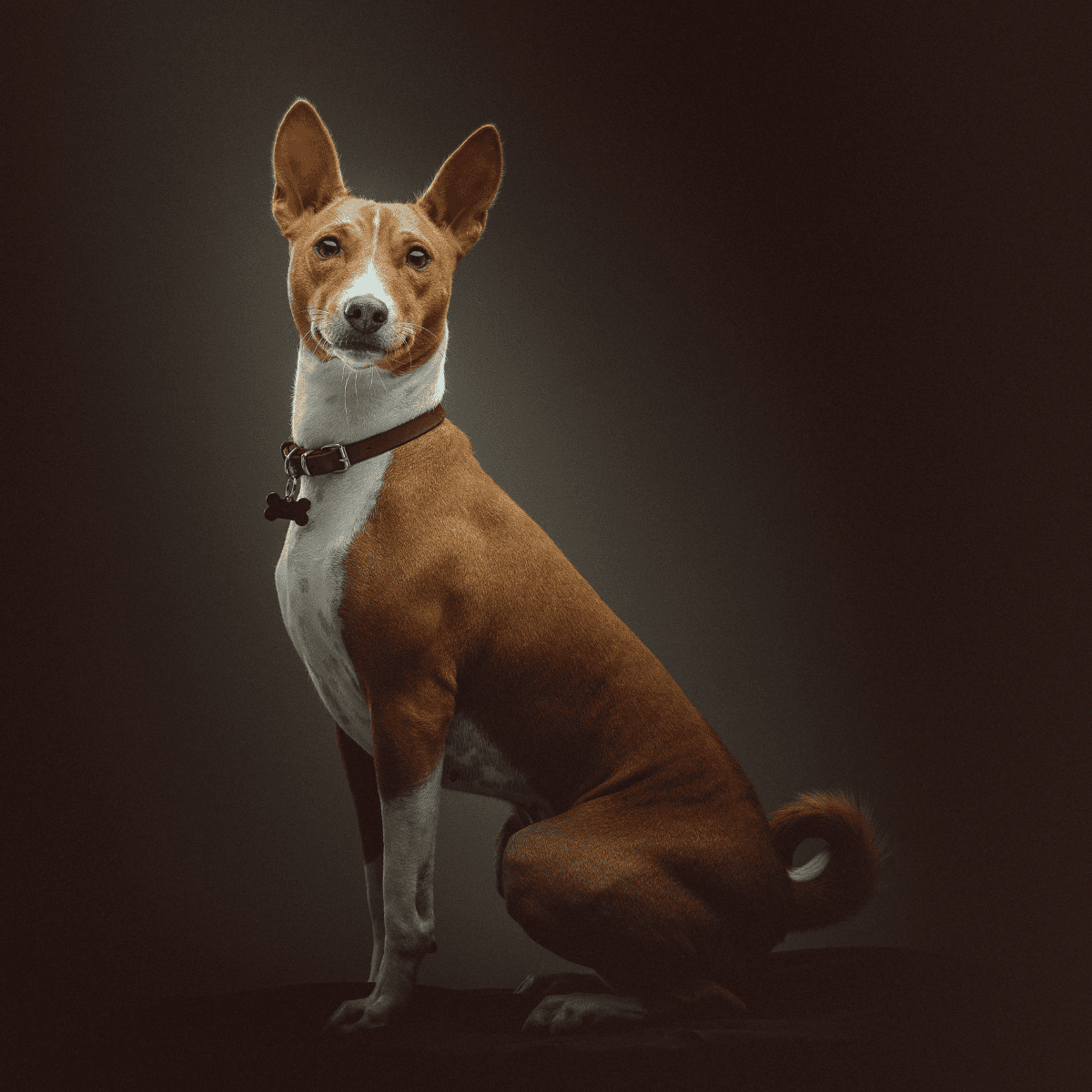
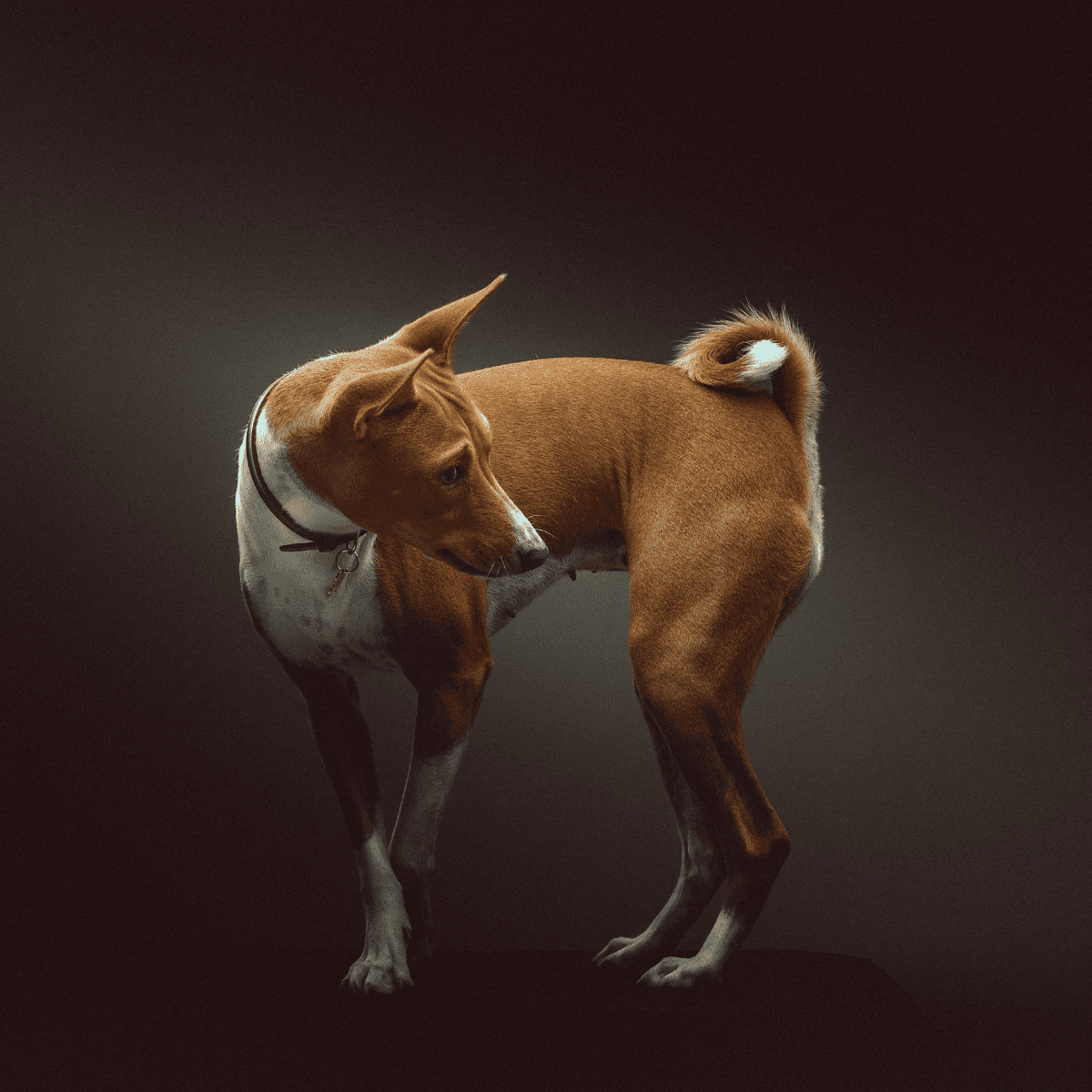
Basenji Puppies
Basenji puppies stand out for their intelligence and cat-like independence. They boast minimal barking behaviors that distinguish them from dog breeds. Their playful and energetic nature makes them excellent companions, but they thrive in active households where they can get plenty of exercise.

With patience and consistency, they can learn commands and tricks, showcasing their intelligence and agility. Overall, Basenji puppies are charming and spirited, perfect for those ready to embrace their lively spirit.
Temperament & Intelligence Of The Basenji
Basenjis are well-known for their dynamic and curious disposition. They develop deep bonds with family and show great affection, yet they can be cautious and distant around new people. Early socialization ensures they grow into well-adjusted adults, preventing the development of overly protective tendencies.
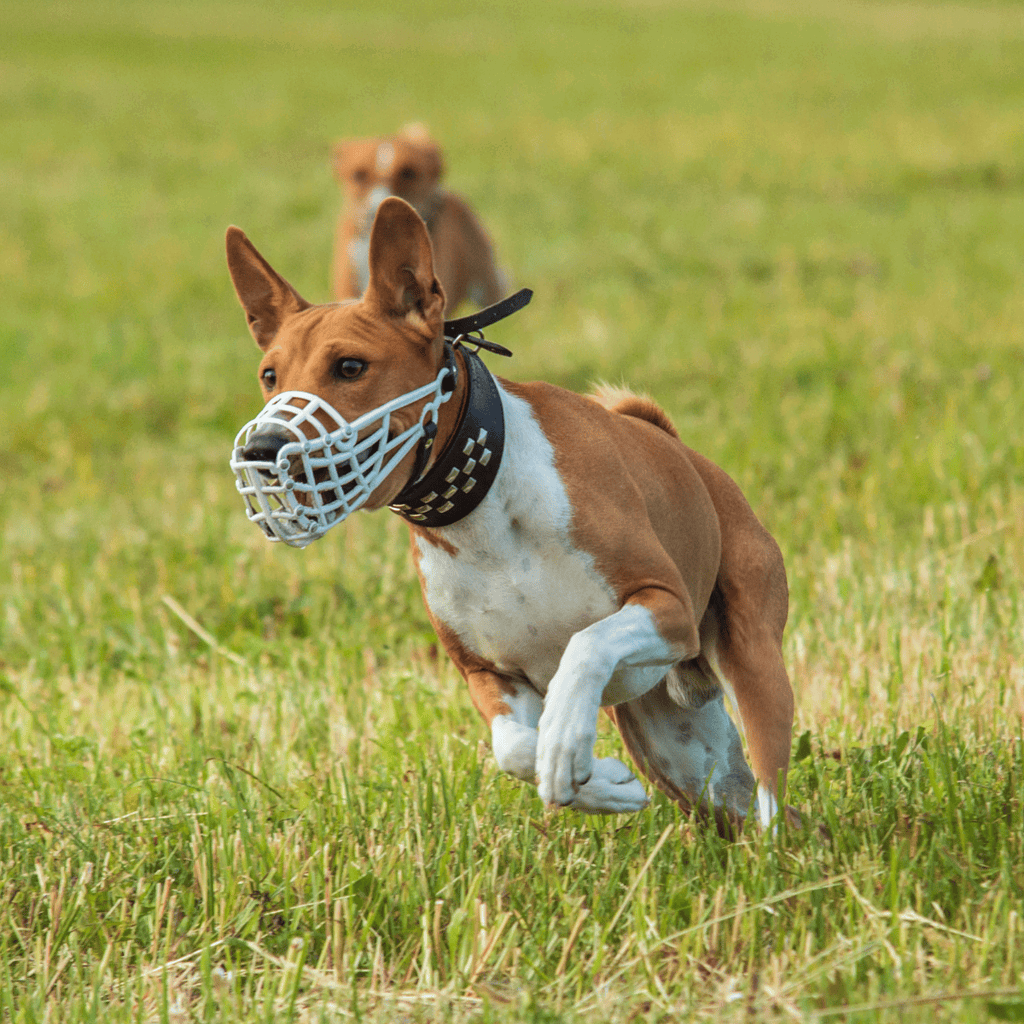
This intelligent breed often engages in mischief if bored, which can lead to destructive behavior. They thrive on both mental and physical stimulation to avoid trouble. Training Basenjis is challenging due to their stubbornness, but they learn quickly with positive reinforcement and engaging, brief training sessions.
Are These Dogs Good For Families?
Due to their high energy levels, Basenjis are perfect for active families. These dogs need regular exercise and activity to thrive. Properly socialized, they get along well with children, especially older ones who can interact with pets responsibly. However, supervision is needed when Basenjis plays with very young kids, as their enthusiasm can be overwhelming.

Families should teach their children to treat Basenjis with kindness and firmness. This breed does not appreciate rough handling and prefers controlling its interactions. Basenjis love to chew, so keeping toys and belongings out of reach can prevent damage. Setting clear rules and consistent training helps these dogs become affectionate, loyal family members through exercise and mental stimulation.
Does This Breed Get Along With Other Pets?
Basenjis, known for their history of pack hunting, are generally good companions for other dogs if they undergo early socialization. This early exposure is vital to fostering amicable relationships with canines. Due to their strong prey drive, they can coexist with cats, mainly when introduced during their younger years, although watching them closely to maintain peace is advisable.
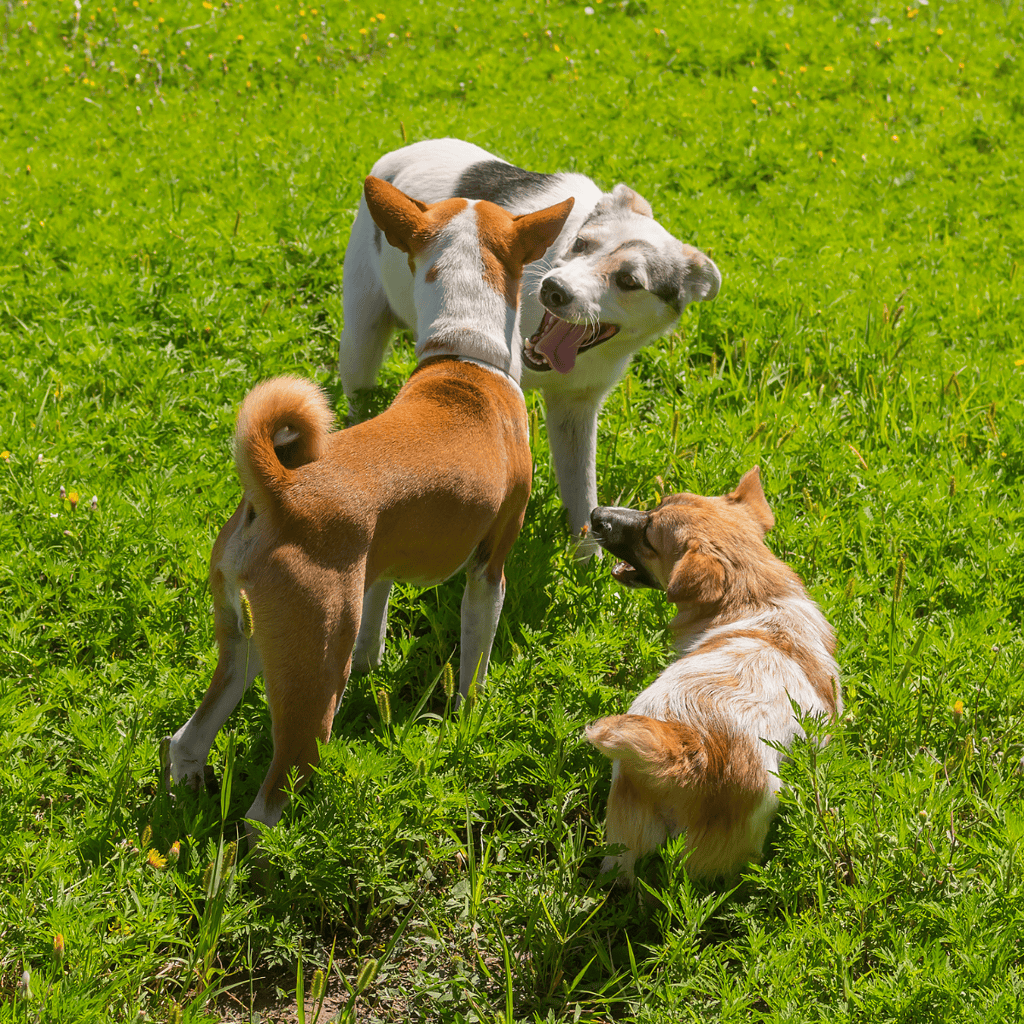
However, Basenjis are less dependable around smaller pets like rodents and birds. The safest approach is to keep such small animals away from Basenjis to avoid conflicts. This separation helps prevent potential issues and ensures the safety of all pets involved.
Food & Diet Requirements
Basenjis need high-quality dog food, whether it’s commercially manufactured or homemade. If you opt for a homemade diet, consult a veterinarian to ensure it’s balanced nutritionally. Choosing the right formulation is essential based on whether the Basenji is a puppy, adult, or senior.

Keeping an eye on their weight is crucial since Basenjis can be prone to obesity. Treats should be given sparingly to prevent weight gain. Avoid feeding your Basenji table scraps, as they can cause stomach upset and are not usually nutritionally balanced for dogs.
Exercise
Basenjis are a high-energy breed and require daily exercise to stay fit and prevent boredom. Providing them with at least 40 minutes of vigorous activity, such as play, walks, or jogs, is essential. Because of their strong hunting instincts, they should always be kept on a leash or in a fenced area to prevent them from running after potential prey.
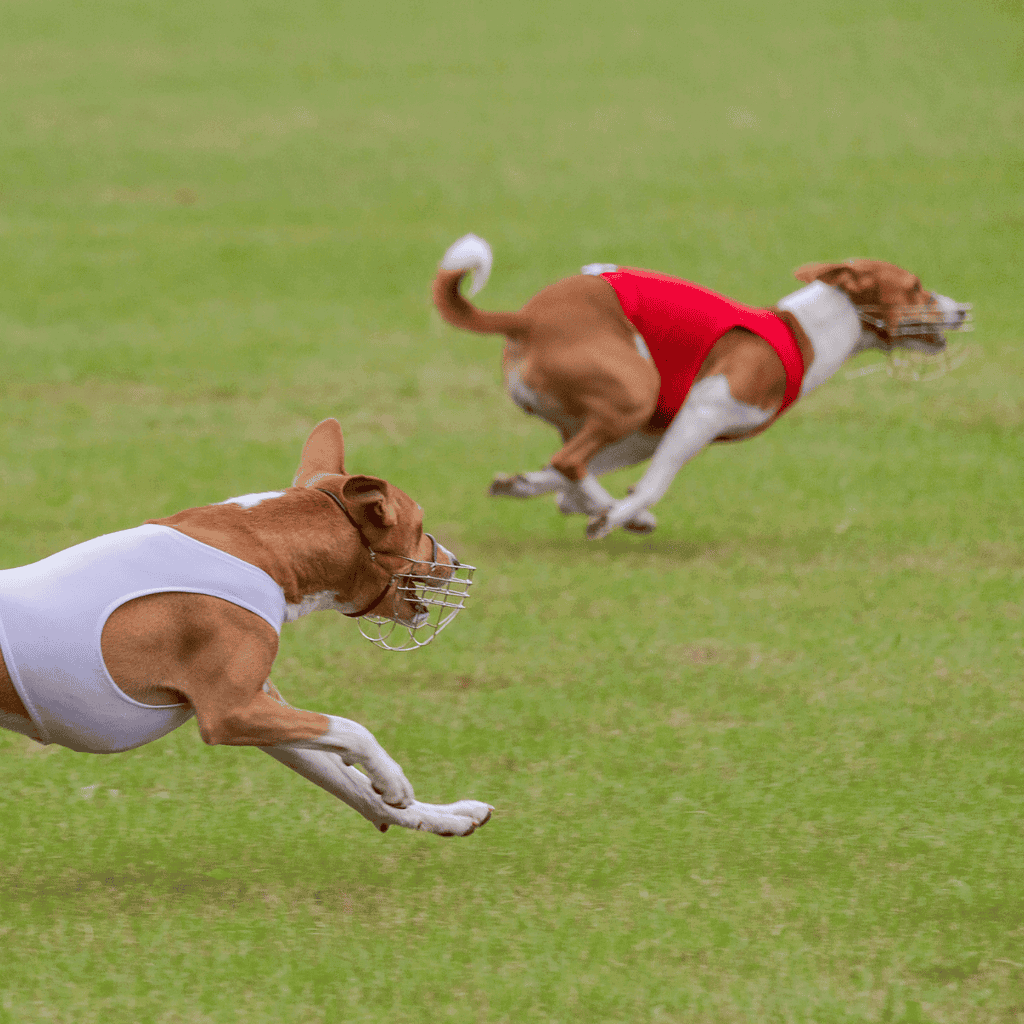
Engaging them in canine sports, such as lure coursing, can also be enjoyable and help them utilize their natural hunting abilities. Regular physical and mental stimulation is essential for keeping Basenjis happy and healthy.
Training
Training Basenjis can be challenging due to their independent nature. Although they are intelligent, their stubbornness makes consistent training essential. Short, frequent sessions are recommended, as longer ones may lead to boredom. With patience and persistence, owners can achieve better results. Positive reinforcement is crucial; using treats, praise, and rewards encourages good behavior and fosters a positive training environment.
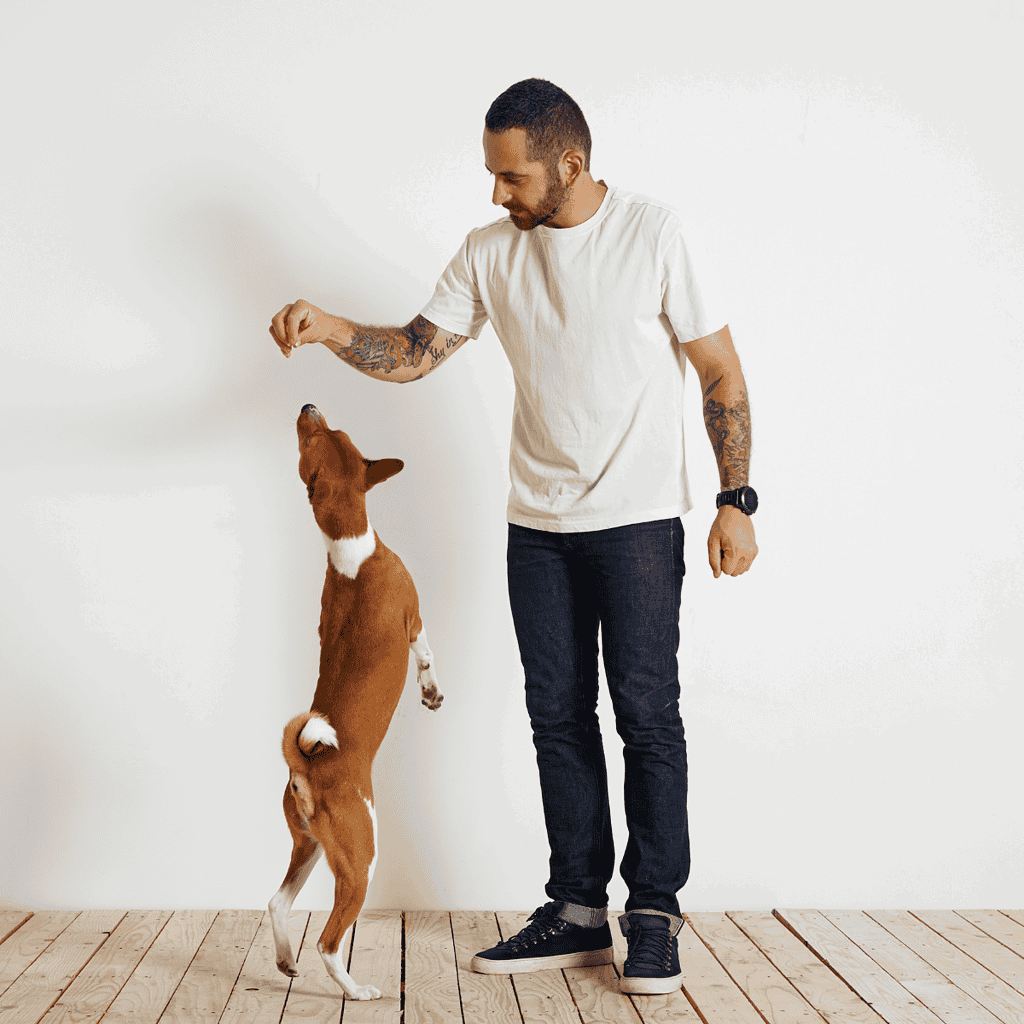
Consistency in commands and techniques is key to providing clarity for the dog. Mixed signals can confuse Basenjis and hinder progress, so a straightforward, steady approach is more effective. To keep training engaging, creativity is necessary; varying activities helps maintain their interest and prevents monotony.
Grooming
Basenjis are known for their self-cleaning habits, much like cats. Because they lack an undercoat, they don’t carry the typical dog odor, reducing the need for frequent baths. Regular brushing with a hound glove or a soft bristle brush will help keep their coat shiny and healthy.
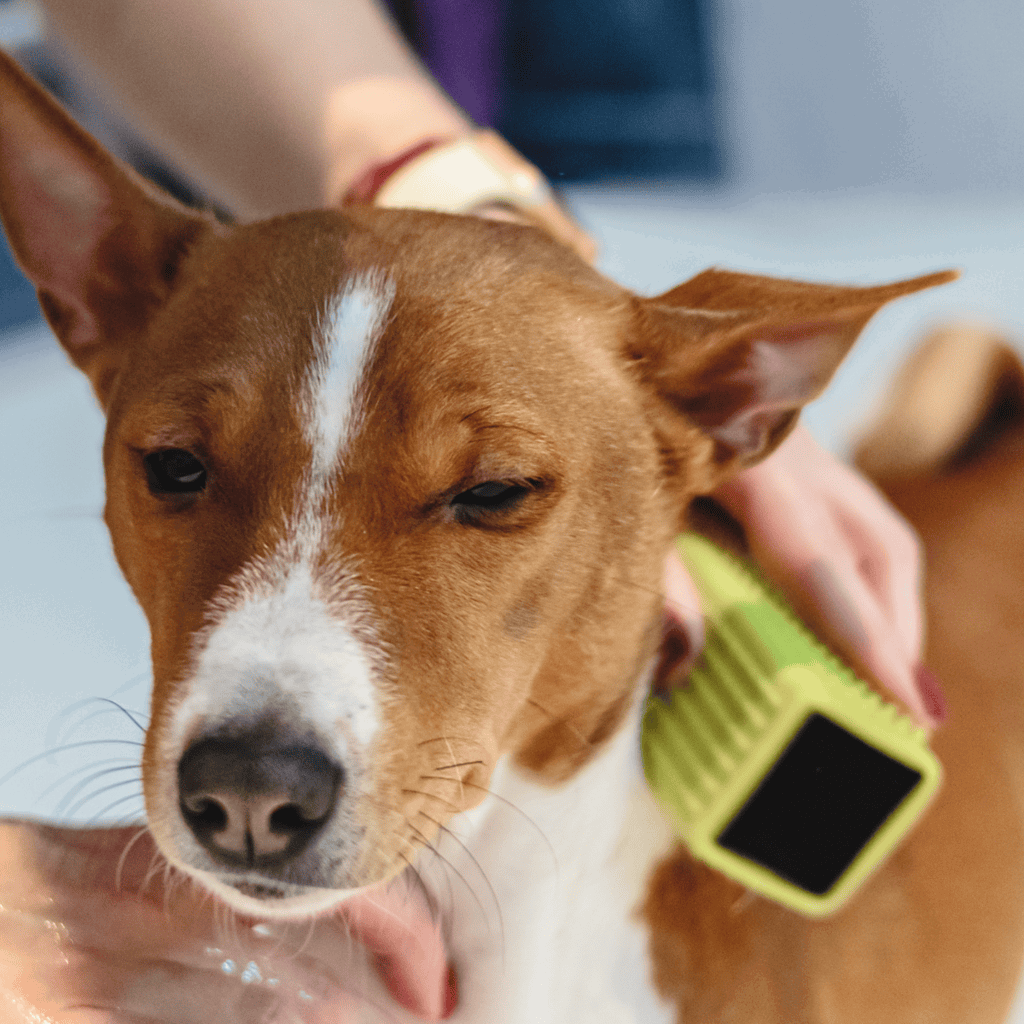
When it comes to nail care, it’s important to trim their nails regularly to avoid overgrowth, using suitable dog nail clippers. For dental health, regular brushing with dog-specific toothpaste is advised. Although Basenjis have minimal grooming needs, consistent care is crucial for maintaining their best appearance.
Male Vs. Female
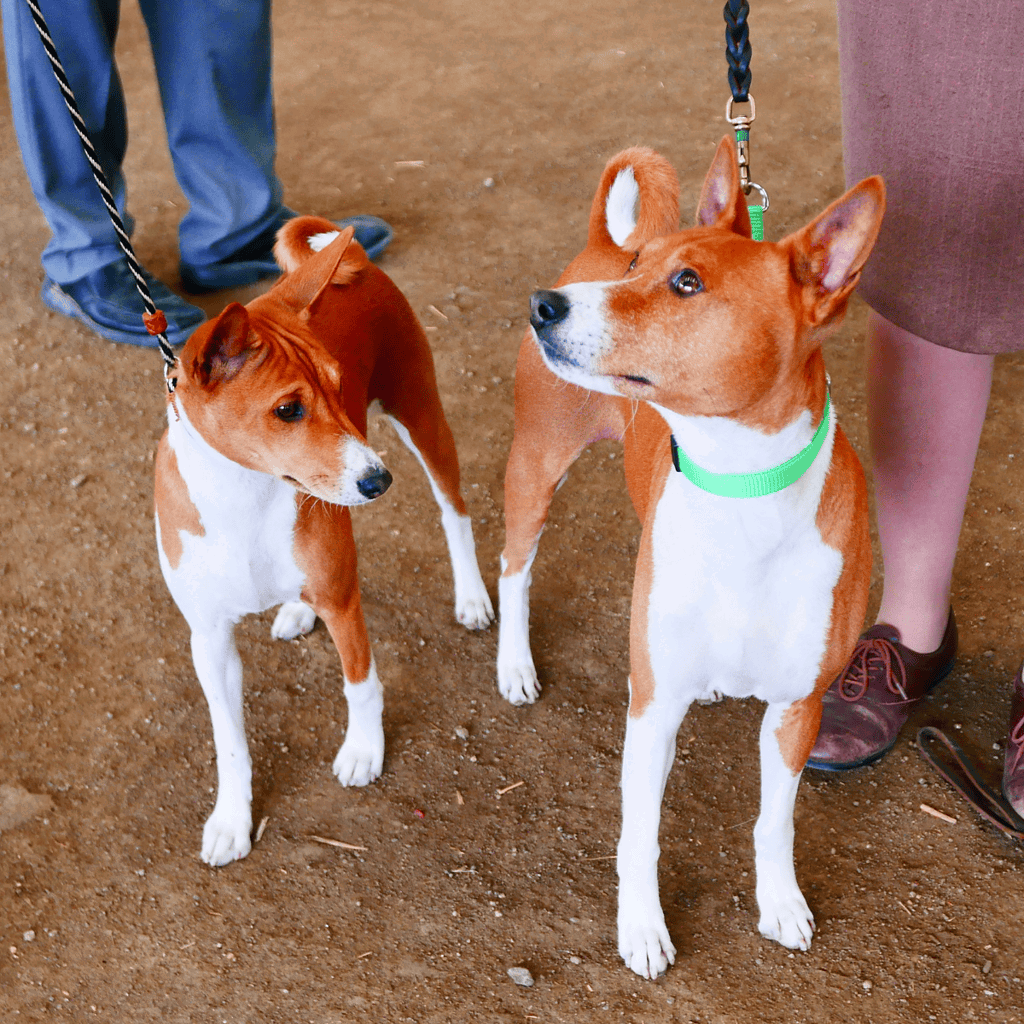
Female Basenjis are often smaller than males, a consideration for those with limited space. Both genders exhibit similar affectionate, intelligent, and independent temperaments and require regular exercise. The choice between male or female may depend on availability and personal preference, as some owners may have a predisposition based on past experiences.
Fact #1: Basenjis Might Be the World’s Oldest Dog Breed
Artwork dating back to 6,000 B.C. in Libya features hunters with dogs that have curled tails, a distinguishing trait of the Basenji. Artifacts from ancient Egypt also showcase these dogs, emphasizing their long-standing presence and significance.
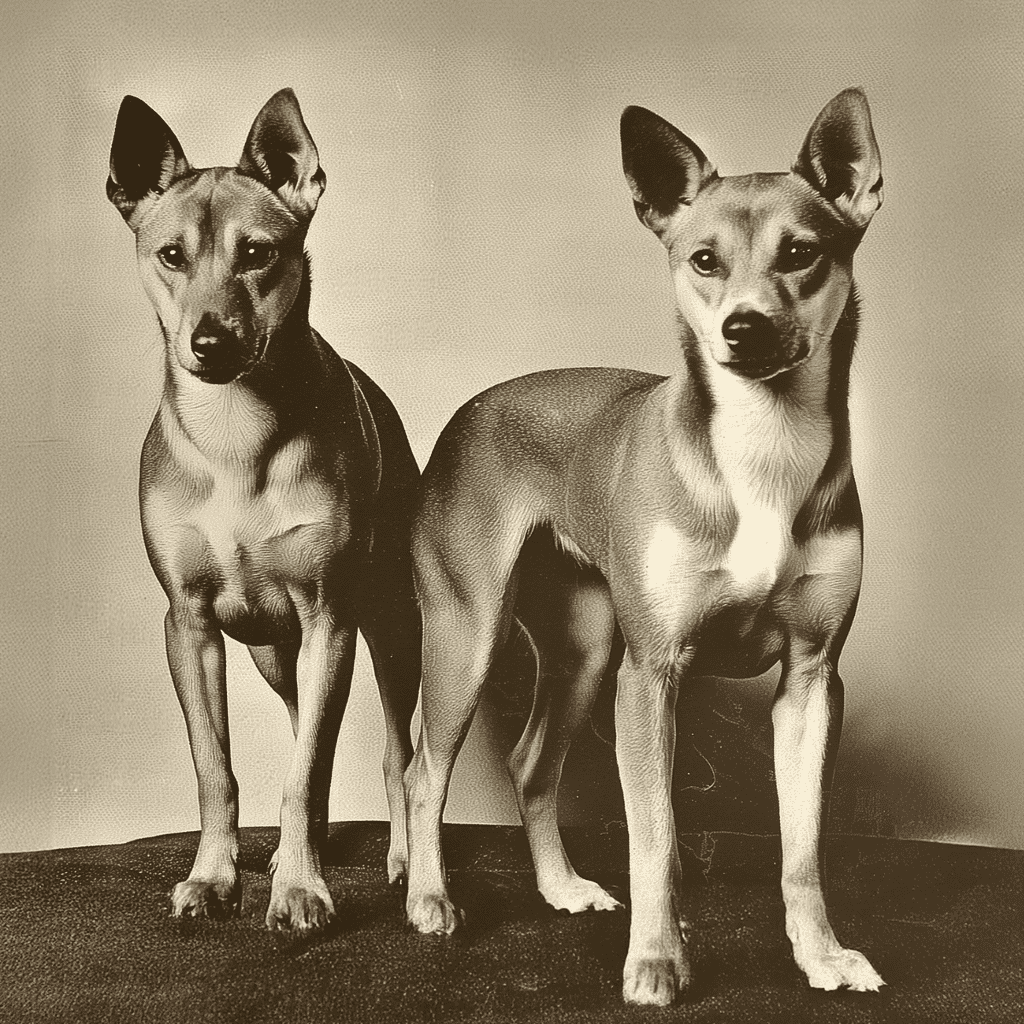
Records suggest that these dogs were given precious gifts to the pharaohs after being transported from Central Africa. Their ancient lineage and historical evidence indicate their status as possibly the world’s oldest dog breed.
Fact #2: The Basenji’s African Breed Name Has a Literal Translation
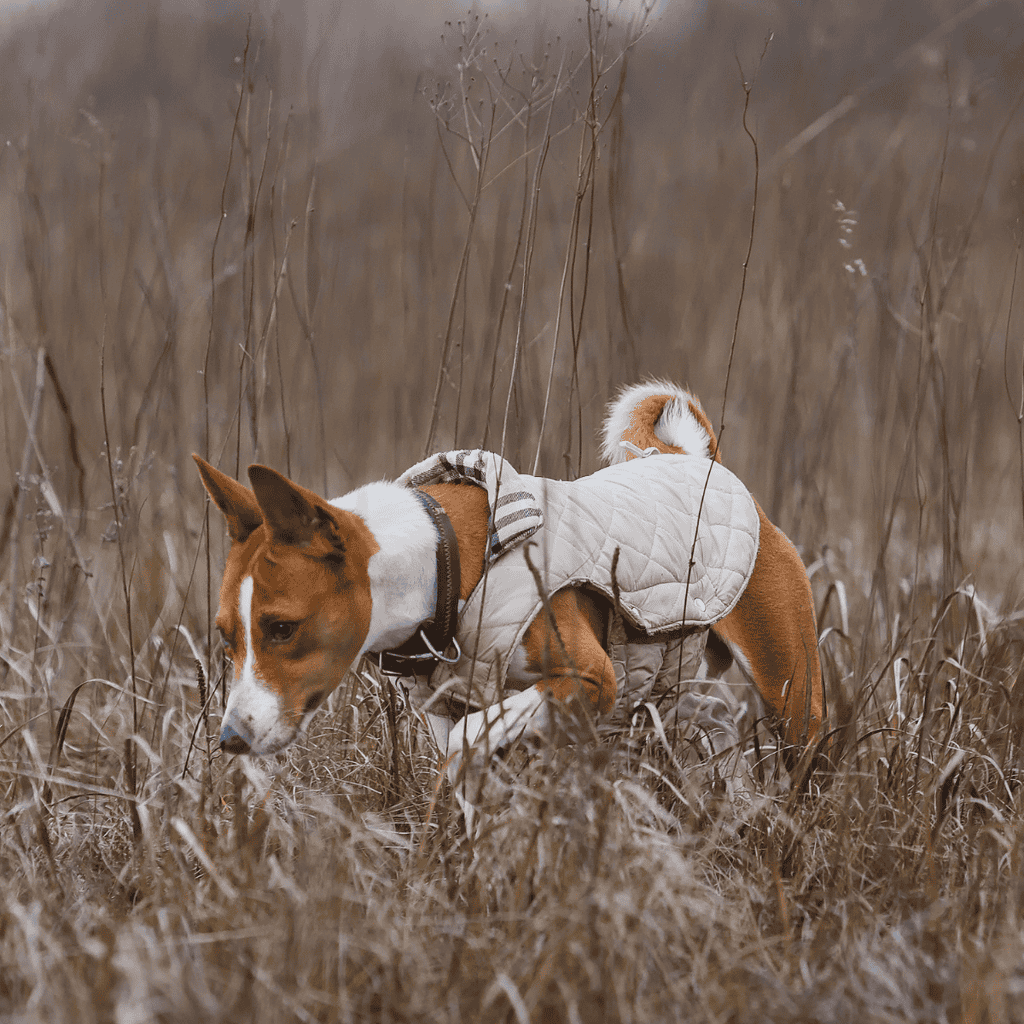
The Basenji’s original African name is M’bwa m’kube M’bwawamwitu. Translating this name reveals a fascinating characteristic: “the jumping-up-and-down dog.” This fitting description highlights the breed’s notable ability to jump impressively high. This trait made the Basenji highly valued for various tasks requiring agility and quick movements. Their name provides insight into their energetic nature and historical significance.
Fact #3: Basenjis Don’t Bark
The Basenji has a unique anatomy that prevents it from producing a traditional bark because its larynx is shaped differently from that of most dogs. Instead of barking, Basenjis can make other sounds, such as growling and a distinctive yodeling noise often described as a “baroo.”
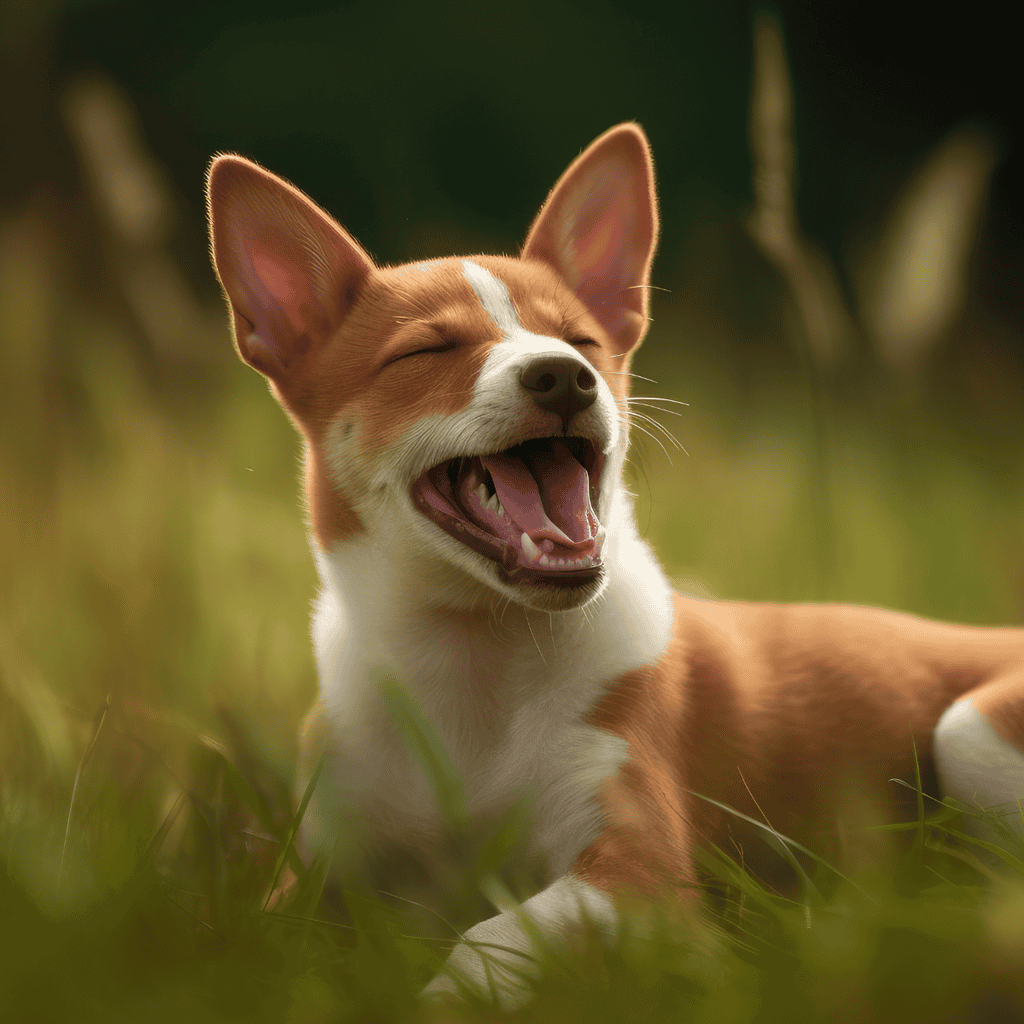
These dogs are generally quiet, and due to their silent nature, African hunters usually attach bells to them to help track them as they pursue prey. This characteristic makes Basenjis suitable for living situations where noise is a concern, as they are not entirely silent but have limited vocalizations that set them apart from other breeds.
Final Thoughts
Basenjis are known for their charming and quirky nature. They thrive in environments with plenty of physical activity and mental stimulation. Prospective owners should be prepared for their high energy levels and curious disposition. Integrating them into family routines can lead to a rewarding companionship.
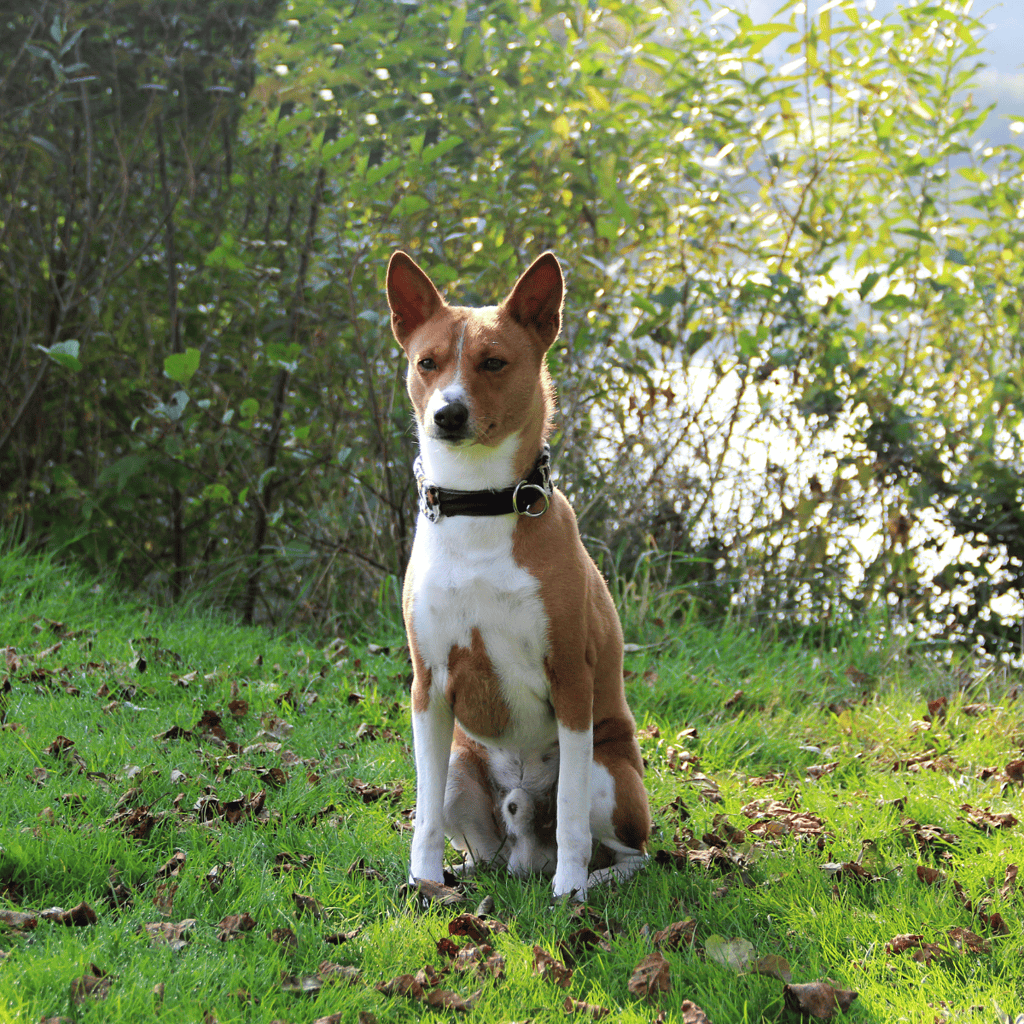
Many people find Basenjis so delightful that they welcome more than one into their home. With the right preparation and understanding, these dogs can bring joy and entertainment to any household.
Frequently Asked Questions
What is the average weight range for a Basenji?
Basenjis typically weigh between 22 to 24 pounds. This weight range helps maintain their agility and active lifestyle.
What personality traits are typically seen in Basenjis?
Basenjis often exhibit independence and curiosity. They are also known to be affectionate with their families yet reserved with strangers.
How long do Basenjis generally live?
Basenjis have a lifespan of about 12 to 14 years. Proper care and a healthy lifestyle can help them live longer.
What are the standard size dimensions of a Basenji?
Basenjis usually stand 16 to 17 inches tall at the shoulder. Their lean and muscular build contributes to their distinctive appearance.
What variety of colors do Basenjis come in?
Basenjis come in several colors, including chestnut red, pure black, brindle, and tricolor. They often have white markings on their feet, chest, and tail tips.
How often do Basenjis require grooming?
Basenjis are low-maintenance in terms of grooming. Brushing their short coat once a week is usually sufficient to keep them clean and well-groomed.

Didn’t find what you need? Use the search!
Search our database of over hundreds of posts with up-to-date information from our experts and veterinarians.

